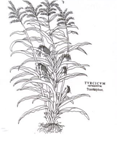Ver ítem
- xmlui.general.dspace_homeCentros e Institutos de InvestigaciónCICVyA. Centro de Investigación en Ciencias Veterinarias y AgronómicasInstituto de GenéticaArtículos científicosxmlui.ArtifactBrowser.ItemViewer.trail
- Inicio
- Centros e Institutos de Investigación
- CICVyA. Centro de Investigación en Ciencias Veterinarias y Agronómicas
- Instituto de Genética
- Artículos científicos
- Ver ítem
Validation of housekeeping genes for qPCR in maize during water deficit stress conditions at flowering time
Resumen
Plant stress studies are increasingly being based on gene expression. The analysis of gene expression requires sensitive, precise, and replicable measurements for specific mRNA sequences. Real-time RT-PCR is nowadays the most sensitive method for the detection of low abundance mRNA. A stable reference gene is mandatory to obtain reliable quantitative real-time PCR (qPCR) analysis results. Real-time RT-PCR is referred with one or several internal control
[ver mas...]
Plant stress studies are increasingly being based on gene expression. The analysis of gene expression requires sensitive, precise, and replicable measurements for specific mRNA sequences. Real-time RT-PCR is nowadays the most sensitive method for the detection of low abundance mRNA. A stable reference gene is mandatory to obtain reliable quantitative real-time PCR (qPCR) analysis results. Real-time RT-PCR is referred with one or several internal control genes, which should not fluctuate during treatments. In this study, we have chosen eight genes
as candidates of possible reference genes for maize (Zea mays L) during water deficit stress at flowering time: a-tubulin, 3`phosphate glyceraldehyde dehydrogenase (GAPDH), 18S ribosomal subunit, protein 13S ribosomal, actin, zein, invertase, and starch synthase IIB. The eight reference genes candidates were tested on maize plants around flowering time, under three different conditions: before water deficit (BWD), under water deficit (WD) and after water deficit (AWD). Results from the three experimental conditions indicated that protein 13S ribosomal gene was the most stable among all the reference genes tested. This result suggests that protein 13S ribosomal gene can be used as internal control (housekeeping) for qPCR analysis in maize plants under water deficit stress during flowering time.
[Cerrar]

Autor
Fuente
Maydica 62 : 6 p.
Fecha
2017
ISSN
2279-8013
Formato
pdf
Tipo de documento
article
Palabras Claves
Derechos de acceso
Abierto
 Excepto donde se diga explicitamente, este item se publica bajo la siguiente descripción: Creative Commons Attribution-NonCommercial-ShareAlike 2.5 Unported (CC BY-NC-SA 2.5)
Excepto donde se diga explicitamente, este item se publica bajo la siguiente descripción: Creative Commons Attribution-NonCommercial-ShareAlike 2.5 Unported (CC BY-NC-SA 2.5)


